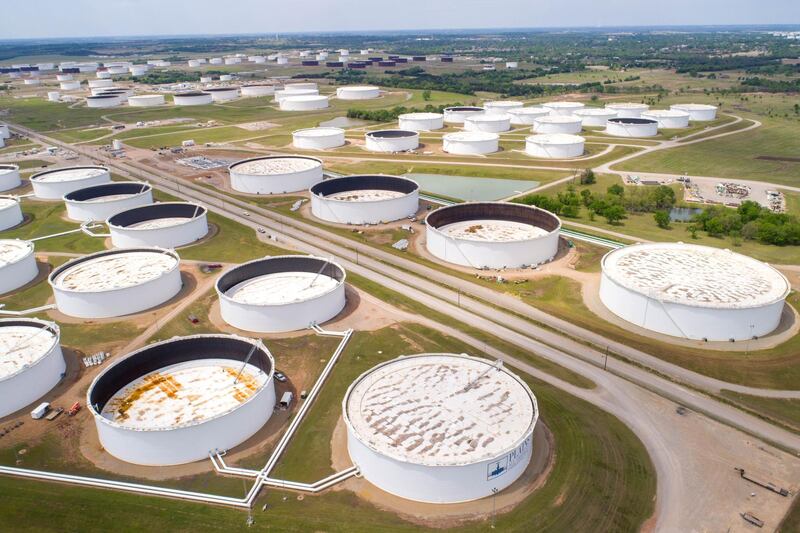Oil prices slumped on Friday after China's decision to omit an economic growth target for 2020 renewed concerns that the fallout from the coronavirus pandemic will continue to depress fuel demand from the world's second-largest user.
Brent crude fell 4.3 per cent to $34.50 a barrel, after gaining about 1 per cent on Thursday.
Whereas, West Texas Intermediate (WTI) crude dropped 5.3 per cent to $32.13 a barrel.
China's National People's Congress (NPC) began a week-long meeting on Friday with the government saying it omitted the 2020 target, while pledging to issue 1 trillion yuan ($140 billion) of special treasury bonds to support companies and regions hit by the pandemic.
Abandoning the growth target "could be interpreted as putting less focus on infrastructure investment and could be viewed as negative for oil," said Stephen Innes, chief global market strategist at AxiCorp.
"The commodity market, in general, was looking for a bigger infrastructure pump from the NPC so there is bound to be an element of disappointment," he said.
Still, both Brent and WTI are heading for a fourth week of gains as more evidence emerged that fuel demand is recovering as countries ease business and social restrictions imposed to counter the coronavirus pandemic.
Gasoline demand is returning with traffic congestion in some of the world's capitals recovering to year-earlier levels after the lifting of coronavirus restrictions, data showed.
Traffic flows in Berlin and Tokyo have rebounded, according to the data, while in the US the easing of restrictions in many states has supported demand for gasoline.
Stock markets also slipped in Asia on Friday as trade tensions flared between the US and China and as more job losses compounded the economic fallout from the coronavirus pandemic.
Hong Kong’s benchmark led regional losses, dropping 3.9 per cent after the central government in Beijing said China’s ceremonial parliament will consider a bill that could limit opposition activity in the former British colony.
“Traders around the world are playing the waiting game to see details of the new Hong Kong law to gauge how severe the terms are," said Mr Innes.
Shanghai's Composite index fell 1.4 per cent, despite a promise by Premier Li Keqiang, the top economic official, to spend more to help revive the country's economy and curb surging job losses from the pandemic.
He warned in his annual report to lawmakers that the battle against the pandemic isn't over and urged the country to “redouble our efforts” to revive slumping economic growth.







